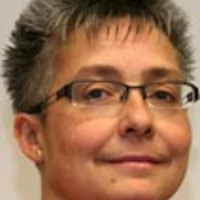It is also possible to do semester and bachelor projects. However, since the topics proposed in our group are typically of a rather specialised and technical nature, it is advisable that students have taken courses in quantum mechanics and have some prior knowledge of particle physics and ideally also quantum field theory.
Possible subject areas for projects are given below. If you are interested in a particular area, please contact directly the relevant member of our group for more details and a concrete and topical project proposal.
Jason Aebischer (jason.aebischer@psi.ch)
- Automation of various aspects of Effective Field Theories, including matching calculations, renormalization group equations, and basis generation.
- Computations involving higher‑loop orders, including tensor reduction, group‑theoretical aspects, and renormalization scheme dependences.
- The study of machine‑learning techniques to facilitate various aspects of QFT computations, such as Feynman diagram evaluation, phase‑space integration, and renormalization‑group running.
Adrian Signer (adrian.signer@psi.ch)
- Computations of fully differential higher-order QED corrections at the low-energy precision frontier, using the McMule Monte Carlo framework. These projects are fairly phenomenological and might involve coding and numerics.
- Inclusion of electroweak and hadronic effects in low-energy processes. Electroweak effects are typically included in an effective-field-theory approach. These projects are a mixture of phenomenology and more technical aspects.
- Computation of amplitudes using the helicity method, studying their behaviour in particular limits (soft or collinear emission, small mass), also including electroweak effects. These are somewhat more formal projects with an emphasis on (computerised) analytic computations.
Michael Spira (michael.spira@psi.ch)
- Precision calculations of Higgs decays and production processes at hadron colliders within the SM and BSM extensions
Peter Stoffer (peter.stoffer@psi.ch)
- Effective-field-theory calculations for physics beyond the Standard Model: formal developments of EFTs at higher orders, interface to lattice QCD, and phenomenological applications
- Hadronic effects in low-energy precision observables, both for Standard-Model predictions and effects of new physics, using EFTs and dispersion relations
Max Zoller (max.zoller@psi.ch)
- Precision calculations of scattering amplitudes in the Standard Model with the numerical tool OpenLoops
- Development and application of algorithms and tools for higher-order calculations of scattering amplitudes

